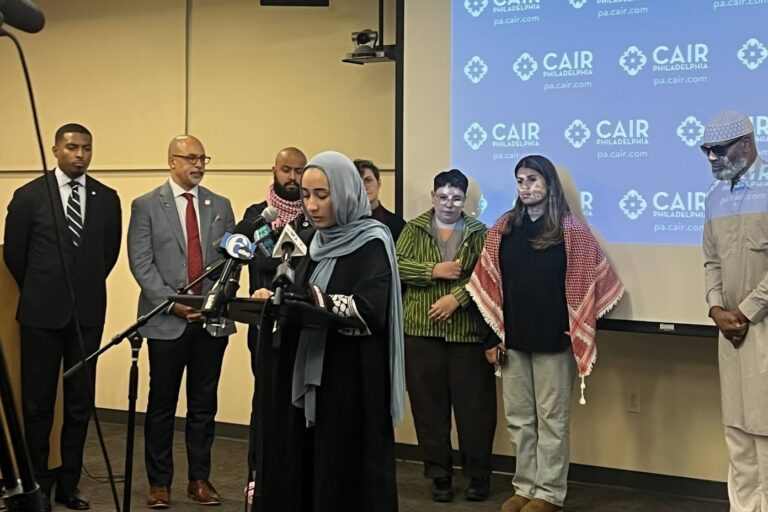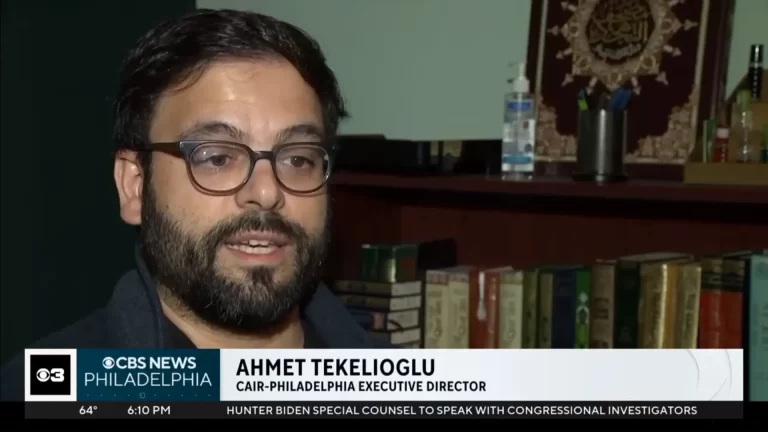![]()
by Rachel Weaver
Pittsburgh Tribune-Review
In the 10 years since 9/11, teachers have taken instruction on Islam’s history and impact from brief references in some Western Pennsylvania classrooms to extensive overviews.
“If we want our students to solve future problems, they must have a strong understanding of world religions,” said Doug Kirchner, social studies curriculum leader at Upper St. Clair High School.
With the school year set to start in a few weeks, several schools are adding classes or revamping curriculum to give students a more in-depth look at world religions, including Islam.
For the first time next spring, Upper St. Clair will offer a class called Asian and Middle Eastern studies that will provide a detailed analysis of Islam. Students at the high school first study Islam as freshmen in world geography.
“The course is run almost like a current events class,” Kirchner said. “Students begin to see how politics, economics and culture can be intertwined.”
The 9/11 hijackers were Islamic terrorists, but educators said they are taking care not to stereotype the faith.
Teachers at Sewickley Academy attempt to “depoliticize” the subject of Islam by focusing on its history in classes like world religion at the senior school and East Asian Studies at the middle school, said Claudia Gallant, assistant head of school for academic affairs.
“We give kids an accurate portrayal of the many different belief systems around the world,” Gallant said.
The school conducts assemblies acknowledging certain holidays including Ramadan, the Islamic month of fasting when Muslims avoid eating and drinking during daylight hours. This year, Ramadan began Aug. 1 and will run through Aug. 29.
Students at Greensburg Salem High School first learn about Islam in grade six when they start to study the Crusades as part of an international studies unit.
“It’s brand new to them,” said Bob Lehman, social studies teacher at Greensburg Salem. “They have a foundation with Christianity and Judaism, but we don’t really have a Muslim population here to the extent that they would know.”
They revisit the topic in 11th grade world history in a unit focusing on the world’s five largest religions: Christianity, Islam, Judaism, Buddhism and Hinduism. This year, Greensburg Salem is starting an international studies class.
There is no state requirement that determines when students should start studying about 9/11.
“Curriculum decisions are made at the local level. However, with the impact that Sept. 11 had on our nation, school districts across Pennsylvania have incorporated it into their lessons,” said Tim Eller, spokesman for the state Department of Education.
Lehman said before 9/11, the topic of Islam had never been mentioned in Greensburg Salem’s U.S. history classes. The event forced educators to increase teaching of current events.
“Before that, we were struggling to get to the 1980s,” Lehman said.
Upper St. Clair eighth-graders study the roots of the war on terror in social studies classes, “so most students come into the high school with an ability to separate fact from fiction,” Kirchner said.
In Pittsburgh Public Schools, 9/11 did not make its way into curriculum until this coming school year, said Michael Dreger, social studies curriculum coordinator.
Officials are developing lesson plans pertaining to the attacks that will be taught in some upper-level elective classes and will focus on the events leading up to the attacks and the effects. Dreger said the lessons will not focus on the terrorists.
“There are radical groups within Islam, there are radical groups within Christianity,” he said. “We don’t want to focus on the negative aspects of one religion.”
Moein Khawaja, executive director of the Philadelphia branch of the Council on American-Islamic Relations, said when teaching religion, schools should cover basic beliefs and history.
Talking about the small percentage of Muslims who are extremists is best saved for advanced politics and history classes, he said. He points to the terrorist attacks in Norway executed by Anders Behring Breivik, who identifies himself as a Christian.
“An in-depth discussion of him during a basic lesson on Christianity would be inappropriate,” he said. “They should learn about it in the proper context.”





